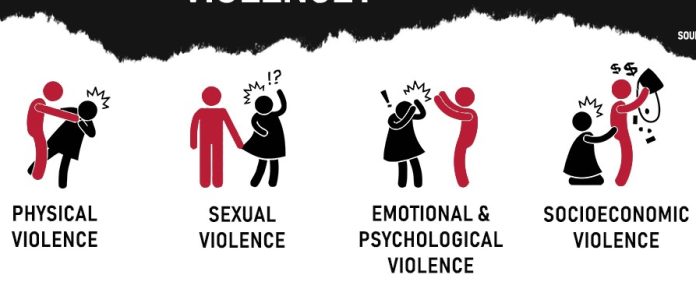The Lagos State Government says there is the need for more Sexual Assault Referral Centres (SARCs) to tackle the crucial services of survivors of Sexual and Gender-Based Violence (SGBV).
Gov. Babajide Sanwo-Olu said this during the 2024 Governor’s Commendation and Awards Night, organised by the Lagos State Domestic and Sexual Violence Agency (DSVA), on Monday night in Ikeja.
The event was organised to end the agency’s commemoration of the SGBV month.
Sanwo-Olu, who was represented by his wife, Mrs Ibijoke Sanwo-Olu, said there were three SARCs in the state, but more was needed, owing to the number of the population.
“We have 20 local governments here, so, it is not enough, because there are lot of cases, we are dealing with 20 million citizens in Lagos State, and we are still counting.
“I am not saying all the 20 million citizens are the victims, but you can imagine, if you do the statistics and the numbers, the announcement they made, the number of cases is over 6,000 and I am sure there are many more out there that have not yet been recorded.
“But what I am happy about is that people are speaking up now. People are reporting cases. The blame and shame game is going on. The sex offenders register is being utilised,” he said.
The governor said from the inception of the agency in 2014, the Lagos State Government had shown unwavering determination to provide holistic support to victims of domestic and sexual violence, while holding perpetrators accountable.
According to him, sexual and gender-based violence is one of the gravest barriers to achieving gender equality, hence, the government will not allow such in the state.
He said the theme for the 2024 activities: “SGBV, Not On My Watch” – was more than a slogan, as it was a call to action for all to take action against the menace.
“The fight against SGBV requires the participation of everyone, religious leaders; community heads; families and individuals alike. It is not just the responsibility of the government or the agency, it is a collective endeavour.
“We must continue to strengthen our legal frameworks, expand our support systems, and most importantly, break the culture of silence that allows abuse to persist,” Sanwo-Olu said.
He who commended the success stories and the impact of the DSVA, described the agency’s efforts as nothing short of extraordinary.
“The work done in the past year alone speaks volumes, receiving over 6,000 cases; providing critical legal and psychosocial support; engaging over a million people across the state in advocacy and education.
“As we mark 10 years of DSVA’s relentless service, I pledge that my administration will continue to support and invest in initiatives that protect our people, particularly the most vulnerable, our women, our children and marginalised groups.
“We will continue to raise awareness, provide resources and ensure that justice is served for every survivor.
“To every survivor who has shown immense courage in coming forward, I dedicate this award to you.
“You are the reason we do what we do, and we will not rest until every form of violence is eradicated from our society,” Sanwo-Olu said.
Speaking with journalists, the Executive Secretary of DSVA, Mrs Titilola Vivour-Adeniyi, said the agency had attended to over 25,000 cases in the last 10 years.
“I will say over 25,000. If we look at the data from just last year, that was 6,316; when we started in 2014; in 2015, we did 450 cases, and we have seen steady increase over the years of these reported cases,” Vivour-Adeniyi said.
She said the agency would continue to embark on sustained advocacy, as there had been a direct correlation between heightened awareness and increase in reporting of SGBV cases.
The executive secretary said the agency was gradually breaking the culture of silence, encouraging people to speak up and speak out, in the past 10 years.
“It has been a very remarkable journey. There is increased faith in the system. People are reporting more, but of course, we cannot rest on our oars, because we know we have not even scratched the surface.
“This issue has continued to remain some of the most important crimes, not just in Lagos, Nigeria, but globally. We are fortunate for the progress that we have made so far,” she said. (NAN)


